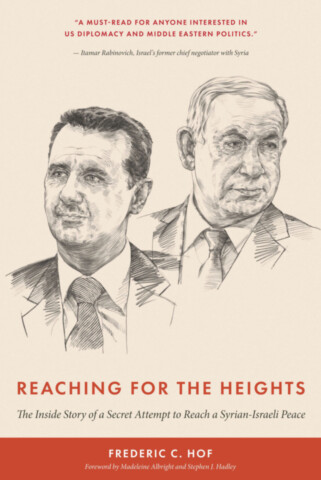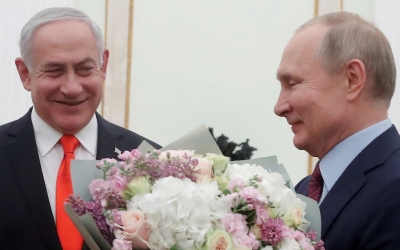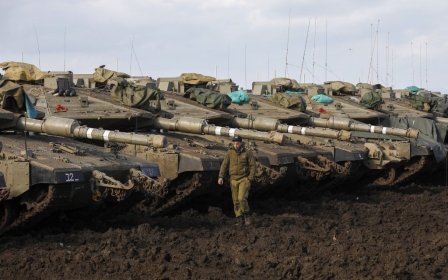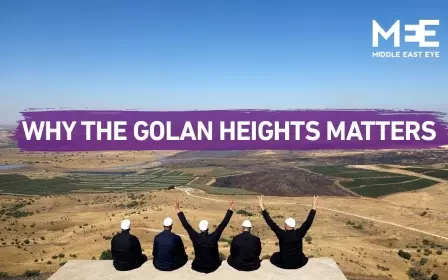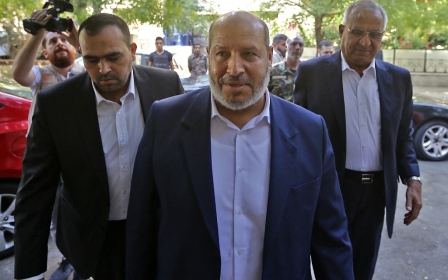Why Syria is vitally important to Israel's regional calculations
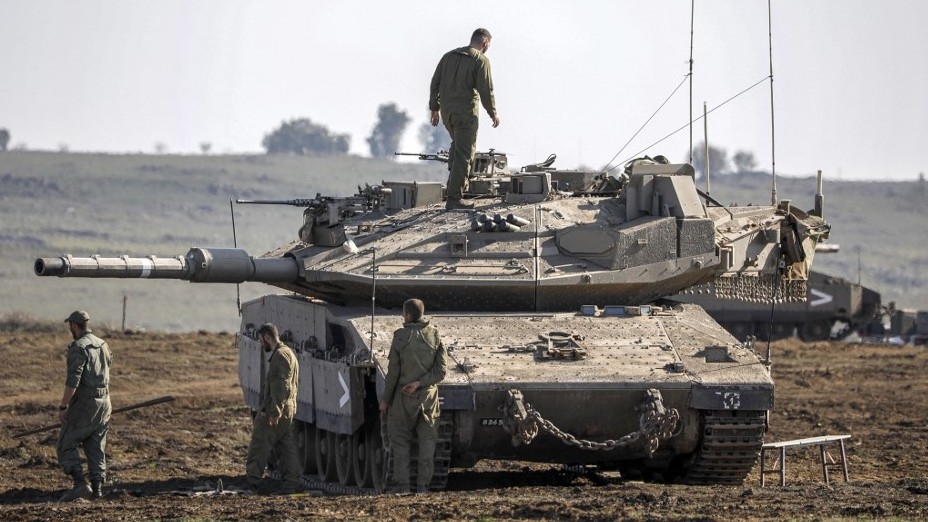
As Syrian President Bashar al-Assad and Turkish President Recep Tayyip Erdogan signal their intent to reconcile, Syria's regional comeback is almost complete. Its last regional enemy remains on its southern border: Israel.
Many books have been written on the Syria-Israel relationship since 1948. But as the Abraham Accords face a stiff challenge as a far-right Israeli government comes to power, Tel Aviv's most urgent problem remains the resilience of the Syrian government, whose comeback has included a rapprochement with Hamas.
The fundamental theme is Syria's refusal to give in to military, diplomatic or economic pressure
A recent book by former US diplomat Frederic Hof, Reaching for the Heights, highlights why Damascus is Israel's last frontier in overcoming its Arab "problem". While Israel might have become nominal friends with some of the Gulf states, along with Morocco and Sudan, none has presented a vital clog in Israel's fundamental security wheel (ie, the Palestinian issue).
While headlines are dominated by news of regular air strikes by Israel against Syria, beneath the surface Israel remains focused on the repercussions of Damascus regaining its regional foothold, albeit in a fairly diminished state. Syria poses no military threat to Israel, but its ability to navigate the byzantine maze of Levantine politics - remaining a relevant factor in Lebanon, Palestine and Turkey - makes it matter more to Israel than most other Arab countries.
Recent unrest among the Druze population in southern Syria has also put Israel on alert, despite it being a sovereign Syrian issue.
New MEE newsletter: Jerusalem Dispatch
Sign up to get the latest insights and analysis on Israel-Palestine, alongside Turkey Unpacked and other MEE newsletters
Untangling the Syrian knot
Just before the start of the Arab Spring in 2011, peace between Israel and Syria was in sight, with US and Turkish diplomats hard at work in search of a rapprochement. Hof's book marks the latest attempt to untangle the Syrian knot.
Hof says that, since he began his career in the American foreign service, every top US diplomat and national security adviser has concluded that peace between Israel and Syria could settle many other regional issues, including the Palestinian question, given the close proximity of Damascus to the Palestinian cause since 1948.
His analysis echoes other seminal works, such as John Boykin's Cursed is the Peacemaker and Moshe Maoz's Syria and Israel. The fundamental theme is Syria's refusal to give in to military, diplomatic or economic pressure. While Jordan and Egypt took US carrots in exchange for peace, Damascus was preoccupied with returning the Golan Heights to their pre-1967 status.
Hof reiterates that Syria was the only Arab army in 1948 to successfully occupy mandate-Palestine land that was earmarked for Israel. Palestinian issues were seen as southern Syrian issues and not distinctly different. He also talks about how, even until the 1950s, Syrian post offices ran on what the UN had deemed to be Israeli territory.
In the view of the Clinton administration in the US, Hof writes, dealing with Syria made it easier to deal with the Palestinians. Just before former Syrian president Hafez al-Assad died in 2000, Israel and Syria were in the process of negotiating territory along the Sea of Galilee.
Hof's own exchanges with the current Syrian president, Bashar al-Assad, provide interesting context on how the Americans have viewed Syria within the region. Hof said he delivered a note to Assad that mentioned Lebanese sovereignty and Syrian influence, to which Assad objected, asking why Lebanon would be involved in talks about Israel-Syria peace.
Influence and intervention
It is this fundamental point that some observers, perhaps even Hof, have misinterpreted. While Israeli leaders discussed the Golan Heights and the exact lines of the Israel-Syria border, many others in Washington and Tel Aviv were more concerned about Syria's power in Lebanon and among Palestinian groups.
While observers today might obsess over Iran's presence in Syria, for successive Israeli defence chiefs, the main issue has been Syria's continued influence and intervention in Lebanon and the Palestinian territories. Every major Palestinian group had been headquartered in either Damascus or Syrian-controlled Lebanon throughout the cold war. Syria has viewed itself as an arbiter in Palestine, one that could go head to head with former Palestinian leader Yasser Arafat.
Its influence on the Palestinian issue meant that Israel had to take on Syria's might in Lebanon either through war, as former Israeli prime minister Ariel Sharon did, or at the diplomatic table, as former leaders Ehud Barak, Ehud Olmert and even Benjamin Netanyahu did. Olmert has even gone so far as to say that peace between Israel and Syria could have prevented the Syrian civil war.
With the recent importance given to Assad by Algeria, the United Arab Emirates and now even Turkey, Israel will continue to monitor events in Damascus. Palestinian groups in Gaza and the occupied West Bank are now jostling for influence, aiming to get back into Assad's good books. Even in Syria's diminished and impoverished state after a decade of war, it continues to punch above its weight.
The views expressed in this article belong to the author and do not necessarily reflect the editorial policy of Middle East Eye.
Middle East Eye delivers independent and unrivalled coverage and analysis of the Middle East, North Africa and beyond. To learn more about republishing this content and the associated fees, please fill out this form. More about MEE can be found here.



